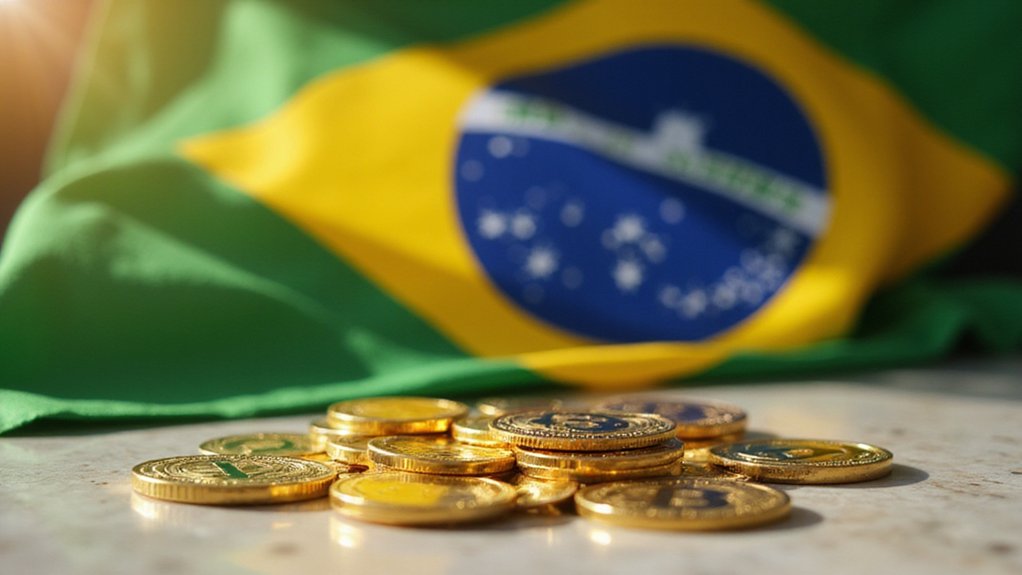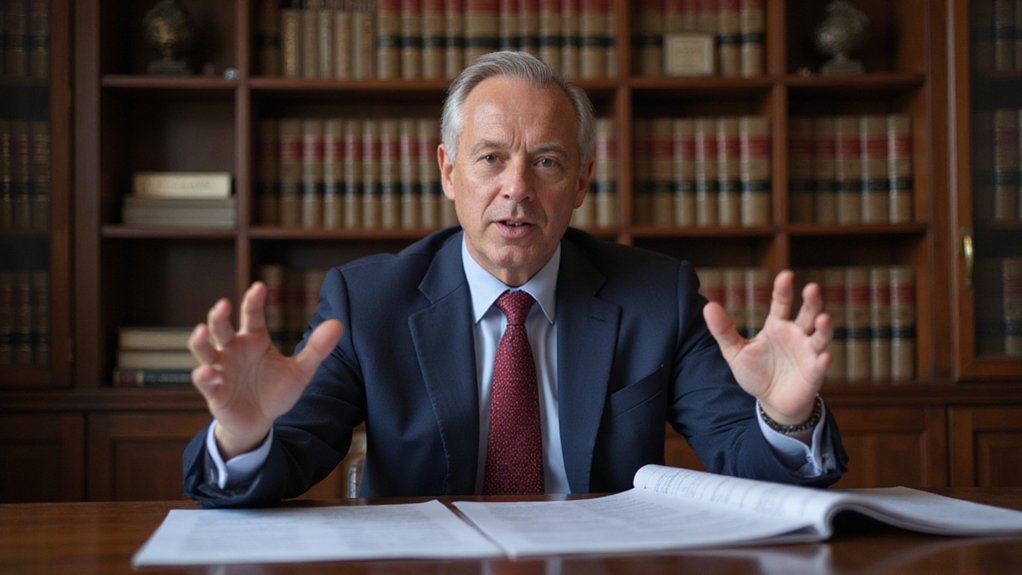Brazil’s Chamber of Deputies has scheduled a public hearing for August 20, 2025, to deliberate Bill 4.501/2024—a legislative proposal that would establish a national Bitcoin reserve comprising up to 5% of the country’s international reserves, potentially converting $15-17 billion worth of sovereign assets into the world’s most volatile digital currency.
Federal Deputy Eros Biondini’s November 2024 brainchild aims to transform Brazil’s approximately $300 billion reserve portfolio through what proponents characterize as strategic diversification (though skeptics might question whether trading Treasury bonds for digital tokens constitutes prudent risk management).
Federal Deputy Eros Biondini’s audacious proposal would transform Brazil’s $300 billion reserves through what supporters optimistically term “strategic diversification.”
The proposed allocation would dwarf existing sovereign Bitcoin experiments—Texas’s modest $10 million investment suddenly appears quaint by comparison. Brazil’s advanced crypto infrastructure includes approved spot ETFs like FOMO11, DEFI11, and HASH11, demonstrating the country’s progressive stance toward digital asset integration.
The hearing will feature an eclectic assembly of stakeholders: Brazil’s Central Bank, Ministry of Finance, banking federation FEBRABAN, and crypto advocates including Abcripto representatives. Diego Kolling from Méliuz and FEBRABAN’s Rubens Sardenberg will presumably debate whether Bitcoin’s volatility represents innovation or institutional recklessness.
Supporters argue cryptocurrency exposure could hedge against real depreciation and dollar dependency while positioning Brazil among digital asset pioneers. The bill’s language encompasses “stable digital assets,” suggesting lawmakers recognize Bitcoin’s temperamental nature.
Intriguingly, the proposal includes provisions for leveraging Brazil’s renewable energy resources—hydropower and solar capacity—for Bitcoin mining operations, potentially monetizing excess generation.
The strategic rationale centers on geopolitical risk mitigation and portfolio modernization. By diversifying beyond traditional fiat currencies and sovereign bonds, Brazil would theoretically insulate reserves from conventional monetary policy spillovers and inflationary pressures. The move aligns with the broader trend toward decentralized financial systems that eliminate traditional intermediaries and enable more direct peer-to-peer transactions.
The timing coincides with growing institutional cryptocurrency adoption, though sovereign implementations remain experimental.
Critics certainly harbor concerns about Bitcoin’s notorious price volatility—a currency that can fluctuate 10% daily hardly epitomizes stability for national reserves. The proposal’s success depends largely on whether participants view Bitcoin as digital gold or speculative mania.
Should the legislation advance, Brazil would establish the world’s largest sovereign Bitcoin holding, potentially influencing other emerging economies to pursue similar diversification strategies.
The Economic Development Commission‘s support suggests serious legislative consideration, though transforming billions in sovereign assets into cryptocurrency remains an audacious gamble on digital finance’s future trajectory.







